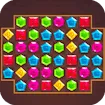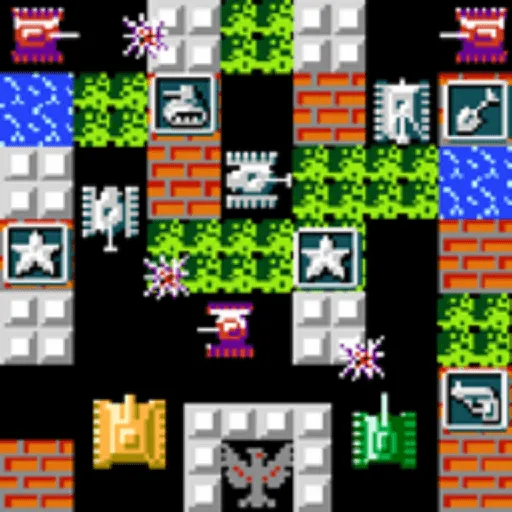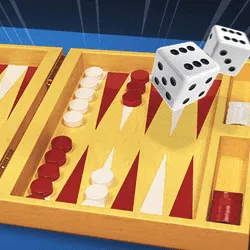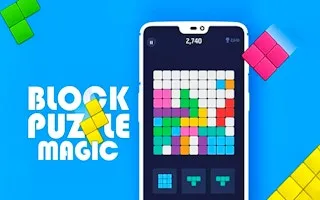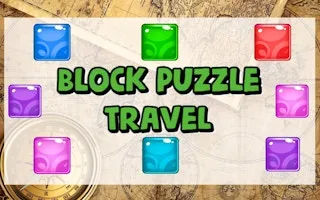Domino Block Game Instructions
Set up the game: Shuffle the domino tiles face down. Each player draws seven tiles.
Starting the game: The player with the highest double tile (e.g., double-six) plays first. If no one has a double, players draw more tiles until one is found.
Playing a turn: Players take turns matching one end of a domino in their hand to a domino on the table. The matching numbers (pips) must be the same.
Unable to play: If a player cannot match a tile, they pass their turn to the next player.
Winning the game: The first player to play all their tiles wins. If no player can make a move, the game ends in a block, and the player with the lowest total pips on their remaining tiles wins.
title="YouTube video player"
frameborder="0"
allow="accelerometer; autoplay; clipboard-write; encrypted-media; gyroscope; picture-in-picture; web-share"
referrerpolicy="strict-origin-when-cross-origin"
allowfullscreen>
These instructions keep the game simple while maintaining the strategic essence of Domino Block.
Starting the game: The player with the highest double tile (e.g., double-six) plays first. If no one has a double, players draw more tiles until one is found.
Playing a turn: Players take turns matching one end of a domino in their hand to a domino on the table. The matching numbers (pips) must be the same.
Unable to play: If a player cannot match a tile, they pass their turn to the next player.
Winning the game: The first player to play all their tiles wins. If no player can make a move, the game ends in a block, and the player with the lowest total pips on their remaining tiles wins.
Domino Block Video Game Demo
title="YouTube video player"
frameborder="0"
allow="accelerometer; autoplay; clipboard-write; encrypted-media; gyroscope; picture-in-picture; web-share"
referrerpolicy="strict-origin-when-cross-origin"
allowfullscreen>
These instructions keep the game simple while maintaining the strategic essence of Domino Block.
Categories:
Domino Block Game Description
Domino Block: A Classic Game with Strategic Depth
Domino Block is a classic tile-matching game where players strategically match dots to win. Learn all about gameplay, strategies, and tips to master Domino Block here.
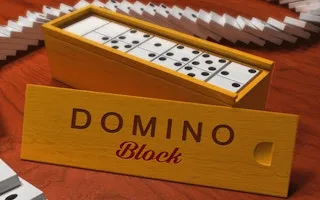
Domino Block
Domino Block is one of the most iconic and simple forms of the dominoes game, beloved by players of all ages. In this online version, players match tiles with an equal number of dots, aiming to be the first to use all their tiles or minimize their score if no more moves can be made. The beauty of Domino Block lies not only in its straightforward mechanics but also in its layers of strategy, making it an engaging game for both beginners and seasoned players.
The game's online version faithfully recreates the tactile charm of traditional dominoes while adding a dynamic, fast-paced experience. Whether you are looking to kill some time, sharpen your strategic thinking, or enjoy a fun challenge with friends, Domino Block delivers a delightful gaming experience.
Understanding the Basics of Domino Block
Domino Block uses the double-six domino set, which contains 28 tiles. Each tile is divided into two halves, and each half shows a number of pips (dots) ranging from 0 to 6. The game typically involves two to four players, and each player draws seven tiles at the beginning.
The objective of the game is to match tiles with the same number of pips on one side. The first player places a tile, and subsequent players must match one of their tiles to one end of the placed tile. The simplicity of the rules allows for anyone to jump in and start playing, but beneath this simplicity lies a game of careful planning and strategy.
Domino Block belongs to the blocking game category of dominoes, meaning players win by playing all their tiles or forcing a block, where no more moves are possible. The game rewards strategic foresight, as each move impacts the player's future options and the likelihood of being blocked by opponents.
How to Play Domino Block?
The game begins with all tiles face down, and each player draws seven tiles. The player with the highest double starts the game, and if no double is drawn, players continue drawing until one is found. The double tile serves as the starting point, and the game proceeds clockwise.
Each player, in turn, attempts to match one of their tiles to an open end of the tile chain. For example, if the open end of the chain has a 5, the player must place a tile with a matching 5. If a player cannot make a move, they must pass their turn.
If a player successfully plays all their tiles, they shout "Domino!" and win the round. If no player can play and the game ends in a block, players turn over their remaining tiles and count the dots. The player with the lowest total wins.
Strategies for Winning at Domino Block
Understanding Open Ends: In Domino Block, your success hinges on controlling the open ends of the tile chain. By carefully selecting which tile to play, you can steer the game in your favor. The key is to avoid leaving your opponents with easy options while maximizing your ability to make future plays.
For instance, if you hold several tiles with 6 pips, it's wise to keep the 6 open and play tiles with other numbers, ensuring your hand remains flexible. Conversely, you should aim to limit the number of tiles that your opponents can play by blocking the ends with numbers they are less likely to hold.
Blocking Opponents: Blocking is a vital defensive strategy in Domino Block. By observing the numbers that your opponents are frequently playing, you can deduce which tiles they may have left. By playing tiles that close off the numbers they need, you can force them into a position where they cannot play, or worse, pass their turn, which gives you a significant advantage.
Balancing Offensive and Defensive Play: While blocking is important, you must also manage your own tiles. An overly defensive strategy can backfire if it leaves you with unplayable tiles later in the game. The best players strike a balance between aggressive tile placement to maximize their options and strategic blocking to disrupt their opponents' plays.
Managing the Boneyard: In some variations, the boneyard (the pile of unplayed tiles) plays a key role. If players are allowed to draw from the boneyard when they cannot make a move, it adds an extra layer of strategy. Be mindful of the boneyard and how drawing tiles can affect the game. In Domino Block, the fewer tiles you leave yourself with, the better your chances of winning.
Tile Counting and Memory: As you progress through the game, it becomes crucial to remember which tiles have been played. Tile counting helps you predict which numbers are still available and which are likely in your opponents' hands. By keeping track of the most frequently played numbers, you can make more informed decisions about which tiles to play and which to hold onto.
Popular Variations of Domino Block
While Domino Block is a standalone game, it is also one of the foundational variants of dominoes. Other popular games, such as Mexican Train and Chickenfoot, share many similarities but introduce additional rules and scoring systems. Understanding these variations can enhance your appreciation for Domino Block and help you adapt to different styles of play.
For example, Mexican Train introduces multiple starting points and additional rules for train-building, while All Fives involves scoring based on multiples of five. These variants offer a fresh take on the basic mechanics of Domino Block while maintaining the strategic depth that makes the game so engaging.
Tips for Beginners
If you are new to Domino Block, here are a few tips to help you get started:
Practice Regularly: Like any game, the more you play Domino Block, the better you'll become. Start by practicing with friends or playing online to get a feel for the game's flow and strategy.
Observe Experienced Players: Watching experienced players can give you insight into advanced strategies, such as how to manage the boneyard or when to block opponents effectively.
Stay Flexible: Keep your options open by playing tiles that allow you to maintain control of the board. Avoid getting locked into situations where you are forced to play your highest-value tiles early in the game.
Advanced Strategies for Competitive Play
Once you have mastered the basics, you can elevate your gameplay with these advanced strategies:
Tile Counting: As mentioned earlier, keeping track of which tiles have been played is critical. If you can anticipate which tiles your opponents hold, you can better predict their next moves and counter them.
Playing Doubles Wisely: Doubles can be both a blessing and a curse. While they provide more flexibility in terms of matching tiles, they can also limit your future plays. Save your doubles for when they will give you the most strategic advantage.
Endgame Strategy: In the later stages of the game, focus on reducing the number of high-pip tiles in your hand. Holding onto high-value tiles increases your risk if the game ends in a block, so aim to play these tiles as soon as possible without giving your opponents an advantage.
Domino Block is more than just a game of chance—it's a game of strategy, foresight, and skill. Whether you're playing casually or competing in a more serious setting, the strategies outlined here will help you gain the upper hand and improve your chances of victory.
PunyGame © 2022. All rights reserved.

